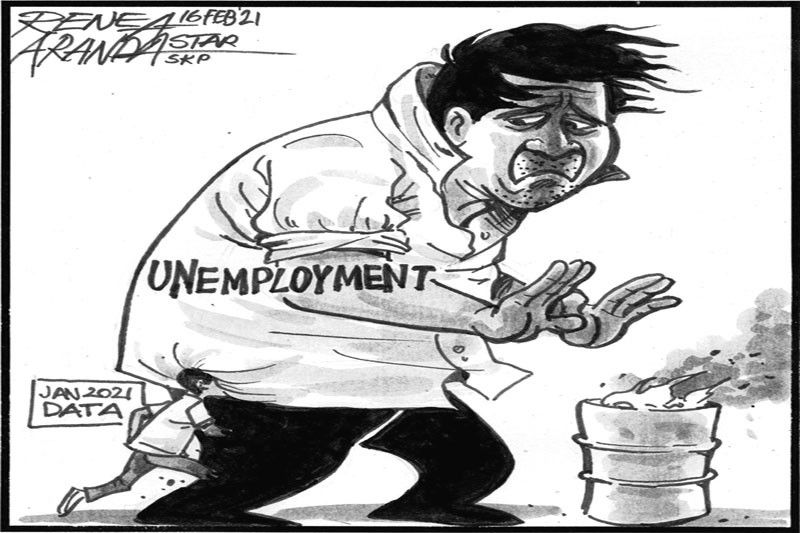EDITORIAL - Displaced, abused workers

As a more infectious COVID variant threatens to spread in Metro Manila and the vaccination program is off to a slow start, job displacements continue. Last month, 133,315 workers nationwide lost their jobs or suffered income loss, according to the Job Displacement Monitoring Report of the Department of Labor and Employment. This was a 78 percent increase from the figure in January 2020.
The workers were affected by retrenchments, permanent business shutdowns, temporary closures, forced leaves and other forms of flexible work arrangements. Metro Manila, epicenter of the pandemic, posted the highest number of affected workers, followed by Central Visayas and Calabarzon.
These figures add to the urgency of starting the vaccination program as soon as possible, and sustaining adherence to COVID health protocols so that the economy can be further reopened without risking a spike in infections.
At the same time, the government must implement the necessary reforms to make the country more business-friendly as global economic recovery begins. Business groups have asked Congress for the passage of several laws to attract investments – and they do not involve divisive Charter change. More effort is also needed to cut red tape, reduce corruption, protect the sanctity of contracts and strengthen the rule of law and regulatory environment.
While improving the ease of doing business in the country, the government and stakeholders must confront another consequence of the massive job displacements: a spike in the exploitation of children for labor and sexual abuse. In a survey conducted by the Philippine Statistics Authority back in 2011, approximately 2.097 million children from 5 to 17 years old were classified as child laborers, with 2.049 million engaged in hazardous work including prostitution, drug trafficking and conditions of slavery.
Part of the Philippine Development Plan for 2017-2022 is the withdrawal of at least 30 percent of those 2.049 million – roughly 630,000 – from child labor. From the time the survey was taken, however, and especially during the pandemic, the problem is believed to have worsened, with more children subjected to various forms of labor exploitation and sexual abuse. Child welfare advocates have noted that parents themselves are often the ones who subject their children to labor and sexual exploitation. The abuse is likely to continue, until parents regain their jobs and legitimate livelihood sources.
- Latest
- Trending




























